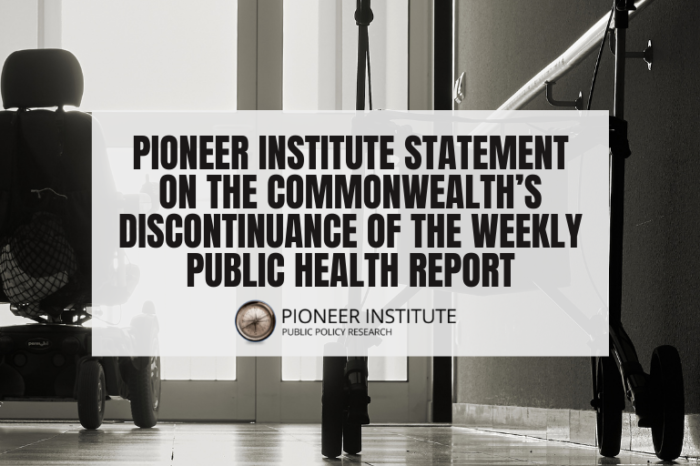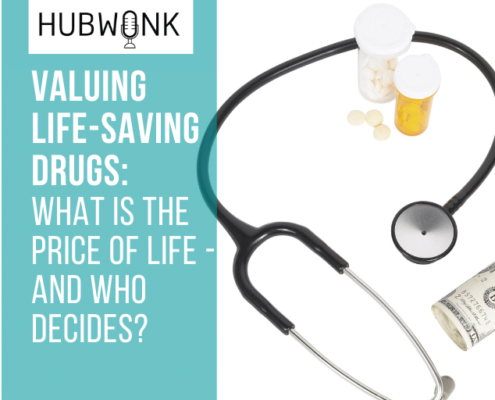Pioneer Institute Statement on the Commonwealth’s Discontinuance of the COVID-19 Weekly Public Health Report
The Commonwealth has a less than stellar record when it comes to disclosing COVID-19 cases and deaths at individual nursing homes and assisted living facilities. At the onset of the pandemic, it was near impossible for families to know the conditions inside a loved one’s facility. While that had improved somewhat over time due to public scrutiny and media attention, the state has now reverted to its earlier ways. Useful information about COVID cases or deaths at individual homes has become less available at a time when cases are increasing again, even among vaccinated residents.
Pioneer urges the state to immediately reinstate the so-called Weekly Report, which contained clear and prominent disclosure of cases and deaths inside individual nursing homes.
Until July, Massachusetts published the “COVID-19 Weekly Public Health Report” specifying COVID cases and deaths over the course of the pandemic and over the prior 14 days for each eldercare facility.
Pioneer played a part in the development of that report. As detailed in Pioneer’s May 12 white paper, “A Brighter Dashboard,” the Weekly Report was substantially improved in April in response to our comments.
Before those improvements, and even more so after them, the Weekly Report was an important resource for elders and their families making vital decisions between eldercare facilities during a pandemic.
Here is an excerpt of the April 22 Weekly Report, showing the array of information provided to the public about each long-term care facility:
But Massachusetts recently abandoned the Weekly Report. The last of these reports was issued on June 30, 2021.
A related report remains available on Mass.gov (the “Chapter 93 Elder Facility Aggregative Report Monthly Update”), but it contains outdated statistics, is hard to locate and is difficult to use (an Excel spreadsheet with multiple tabs). The spreadsheet is released monthly rather than weekly and, unlike the abandoned Weekly Report, shows only overall cases and deaths. By failing to break out recent cases and deaths, it gives no insight into how a particular home has performed during the recent increase in COVID cases.
There appears to be no good reason to abandon the Weekly Report. That unexplained move is a step backwards for the state that resulted in inadequate public reporting about the demographic most at risk from COVID. If there were any doubt that the abandonment of this key report was premature, the Boston Globe just reported a concerning rise in COVID cases in eldercare facilities. The Weekly Report would have given the public a real-time view of this development.
The Commonwealth’s eldercare reporting was deeply flawed at the onset on the pandemic but made incremental improvements over time. It is impossible to predict the extent or impact of the recent rise in COVID-19 cases. Hopefully, this latest COVID wave will subside given the significant share of Massachusetts residents who have been vaccinated and/or have already had COVID. But one thing is crystal clear: this was not a sensible time to stop providing accessible, up-to- date information about eldercare facilities. The state should promptly reinstate publication of the Weekly Report.








